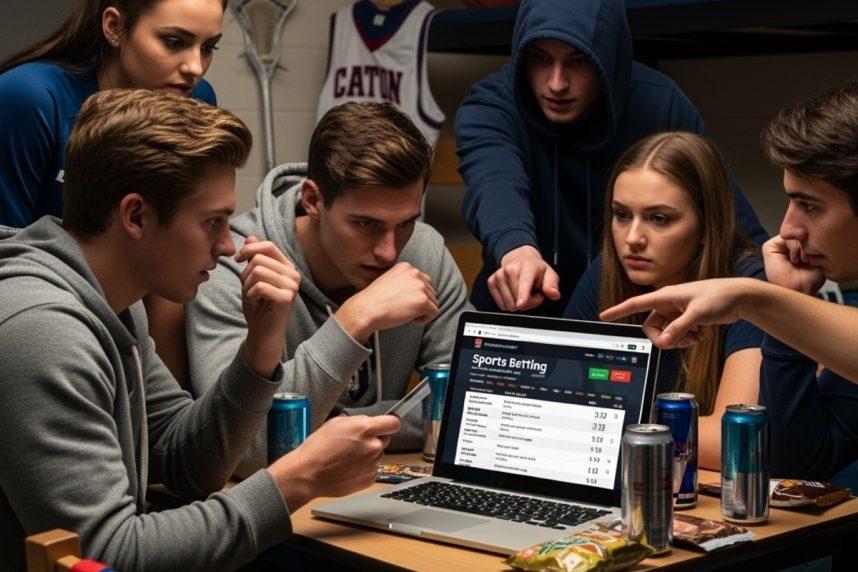NCAA Will Likely Allow College Student-Athletes to Gamble on Pro Sports
Posted on: October 9, 2025, 08:27h.
Last updated on: October 9, 2025, 10:04h.
- College student-athletes will likely be allowed to bet on professional sports
- Currently, college athletes governed by the NCAA cannot participate in any form of sports gambling
The odds are good that the NCAA will adopt proposals to allow its student-athletes participating in Division I, II, and III athletics to gamble on professional sports.

Casino.org’s Todd Shriber reported in May that the Division I Board of Directors had nearly unanimously passed a proposed rule change to the D-1 Council for consideration. The statute suggested amending the NCAA’s ban on student-athletes from betting on pro sports, with violators subjected to penalties, including the loss of eligibility.
On Wednesday, the NCAA Division I Administrative Committee adopted a proposal to allow college athletes and athletics department members to participate in legal sports betting regarding professional sports. If Divisions II and III adopt the rule during their respective meetings later this month, college players will be allowed to gamble on pro sports effective Nov. 1, 2025.
“The Administrative Committee was clear in its discussion today that it remains concerned about the risks associated with all forms of sports gambling but ultimately voted to reduce restrictions on student-athletes in this area to better align with their campus peers,” said Josh Whitman, committee chair and athletic director of the University of Illinois.
Under the NCAA’s current laws, all student-athletes and AD personnel must refrain from engaging in any sports betting.
‘Healthy Habits’
The task of monitoring more than 540K NCAA student-athletes at over 1,000 member schools across 24 different sports is laborious. The NCAA has partnered with numerous third-party monitoring services that use an array of technology to ensure that the population remains compliant with its sports betting regulations.
Lifting the pro sports betting ban would lessen the burdensome task. Whitman claims it would also allow college athletes who enjoy sports betting to do so with a regulated operator that has responsible gaming safeguards, unlike some offshore, unregulated online sportsbooks.
This change allows the NCAA, the conferences, and the member schools to focus on protecting the integrity of college games while, at the same time, encouraging healthy habits for student-athletes who choose to engage in betting activities on professional sports,” Whitman said.
The NCAA’s medical team also spoke favorably about allowing college athletes to bet on pro sports in a regulated environment.
“Abstinence-only approaches to social challenges for college-aged individuals are often not as successful as approaches that focus on education about risks and open dialogue. This harm reduction approach gives schools an opportunity to help student-athletes make educated decisions, prevent risky behavior, and seek support without fear of impacting their eligibility,” said Dr. Deena Casiero, NCAA chief medical officer.
Gambling Part of College Life
The nation’s embrace of legal sports betting has led to gambling becoming an integral part of the college experience.
NCAA-commissioned research in 2023 found that 67% of college students “engage in sports betting on a somewhat regular basis.”
More than four in 10 college students have placed a bet on their school, and about 16% of the college student population has engaged in at least one risky behavior related to their betting.
No comments yet